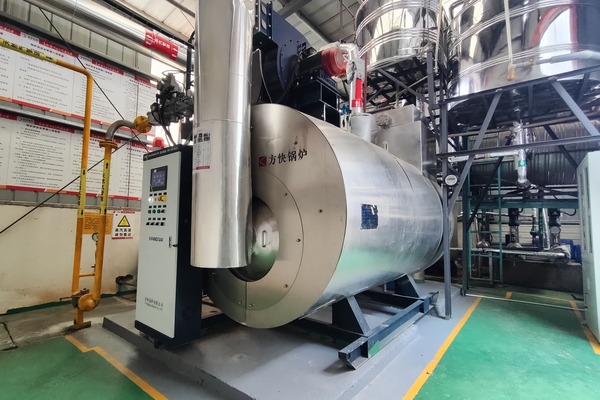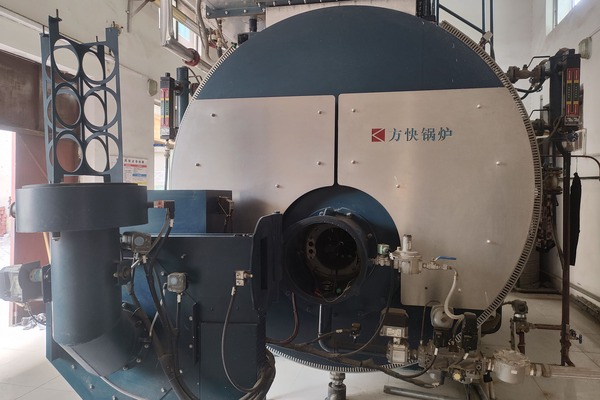Steam is the backbone of every chemical plant. From heating and distillation to reaction processes and product refining, steam is required in almost every stage of chemical production. To ensure efficiency and safety, chemical factories rely on high-performance steam boilers.
This guide explores the most common types of industrial steam boilers used in chemical plants, how to choose the right boiler system, fuel options, water treatment solutions, and a real-world case study from a chemical manufacturer.
1. Common Types of Steam Boilers in Chemical Plants
1.1 Fire-Tube Steam Boilers for Chemical Plants
-
Capacity: 1–20 t/h
-
Efficiency: 82%–87%
-
Advantages: Compact, cost-effective, easy to maintain.
-
Best For: Small to medium chemical plants with moderate steam demand.
1.2 Condensing Steam Boilers for Chemical Plants
-
Capacity: 2–30 t/h
-
Efficiency: Up to 95%
-
Advantages: High efficiency, lower fuel consumption, reduced emissions.
-
Best For: Plants that need energy-saving boilers and must meet strict environmental standards.
1.3 Water-Tube Steam Boilers for Chemical Plants
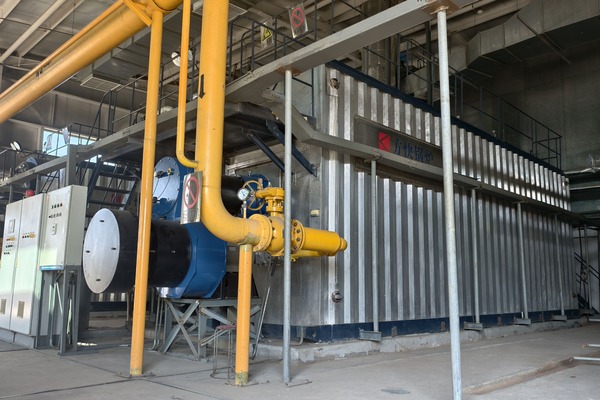
-
Capacity: 10–100 t/h
-
Efficiency: Around 90%
-
Advantages: High-pressure capability, large capacity, reliable for continuous operation.
-
Best For: Large-scale chemical factories requiring massive steam supply.
2. How to Select the Right Steam Boiler for a Chemical Factory?
When choosing a chemical plant steam boiler, key factors include:
-
Steam demand (pressure and capacity requirements).
-
Fuel availability (natural gas, LPG, oil, biomass, or coal).
-
Boiler room space (fire-tube vs. water-tube installation).
-
Emission compliance (meeting local regulations).
-
Automation level (modular, PLC-based control systems for efficiency).
The right choice ensures stable operations, reduced costs, and safe plant performance.
3. Boiler Water Treatment in Chemical Plants
Without proper boiler water treatment, steam boilers in chemical plants face scaling, corrosion, and efficiency losses.
Solutions for Boiler Water Treatment
-
Pre-treatment: Filtration, softening, reverse osmosis.
-
Chemical dosing: Oxygen scavengers, pH control, scale inhibitors.
-
Condensate treatment: Neutralizing and filming amines to prevent corrosion.
-
Online monitoring: Real-time sensors to track water quality.
Fact: Proper water treatment extends steam boiler lifespan by more than 10 years and prevents costly breakdowns.
4. Solving Scaling Problems in Chemical Plant Steam Boilers
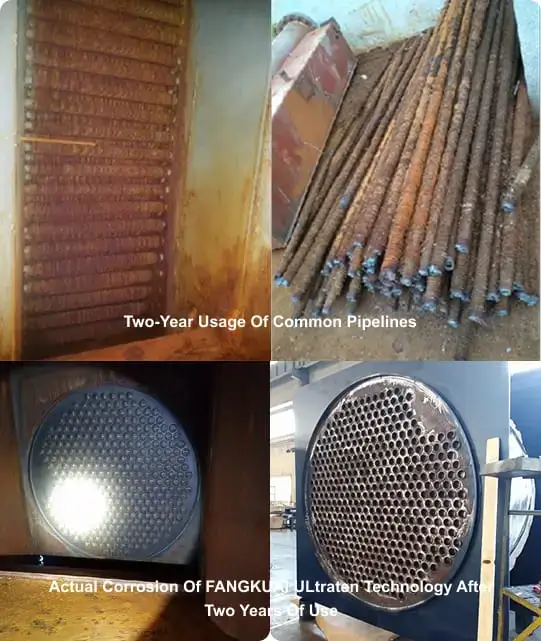
Scaling is a major issue in industrial steam boilers for chemical plants.
Causes of Boiler Scaling
-
Hard water containing calcium and magnesium.
-
High TDS (total dissolved solids) in feedwater.
-
Inadequate blowdown and poor monitoring.
Solutions
-
Water softeners or RO systems.
-
Regular blowdown to remove dissolved solids.
-
Scale inhibitors and dispersants.
-
Scheduled chemical cleaning.
A thin scale layer (1 mm) can increase boiler fuel consumption by up to 10%.
5. Fuel Options for Steam Boilers in Chemical Plants
Fuel is the largest cost factor in boiler operation. The choice impacts efficiency, emissions, and reliability.
-
Natural Gas: High efficiency, clean combustion.
-
LPG / Propane: Flexible and low carbon emissions.
-
Fuel Oil: Reliable but produces more emissions.
-
Coal / Biomass: Cost-effective in some regions, but needs strict emission control.
-
Dual-Fuel Boilers: Provide flexibility against price fluctuations.
6. Case Study: Fangkuai Steam Boilers for Huachao Chemical, Shandong
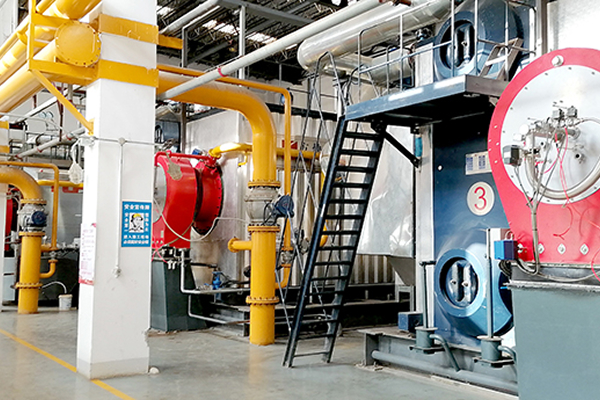
Huachao Chemical, a leading chemical plant in Shandong, required high-pressure superheated steam for large-scale production.
-
Boiler System Configuration:
-
1 × SZS65-3.82/450-YQ
-
2 × SZS30-3.82/450-YQ
-
Modular control system, total 125 t/h steam capacity.
-
-
Production Supported:
-
Iso-octane: 248,000 tons/year
-
Gasoline: 401,680 tons/year
-
LPG: 61,990 tons/year
-
Methanol, MTBE, Aromatics, Butane, Propane, etc.
-
-
Results:
-
Stable supply of superheated steam.
-
Annual fuel savings of USD 300,000.
-
Reduced emissions with modern boiler automation.
-
This project proves the value of modern SZS water-tube boilers in chemical manufacturing.
7. Conclusion
For any chemical plant, steam boilers are the heart of production. Choosing the right boiler type, investing in water treatment, solving scaling issues, and optimizing fuel selection lead to higher efficiency, lower costs, and sustainable operations.
The Fangkuai project in Shandong is a clear example of how modern industrial steam boilers can boost both productivity and cost savings in chemical factories. Contact our technical team today to explore the most energy-efficient, safe, reliable, and sustainable boiler solutions for your chemical plant.
8. FAQ: Steam Boilers in Chemical Plants
Q1: Which steam boiler is best for small chemical factories?
→ Fire-tube steam boilers (1–20 t/h).
Q2: Can condensing steam boilers be used in chemical plants?
→ Yes, for medium-pressure needs with efficiency up to 95%.
Q3: How often should boiler water treatment be monitored?
→ Daily checks are recommended.
Q4: What is the typical lifespan of a steam boiler in a chemical plant?
→ 20–25 years with proper maintenance.
Q5: What is the most efficient fuel for chemical boiler systems?
→ Natural gas or dual-fuel systems.
Get your best price
Quickly compare 3 FREE quotes
- Engineer quick quote
- The overall delivery speed is fast
- Financial choice
- Low installation costs and cost savings
25 years+ of boiler R&D
More than 20 innovative technologies

